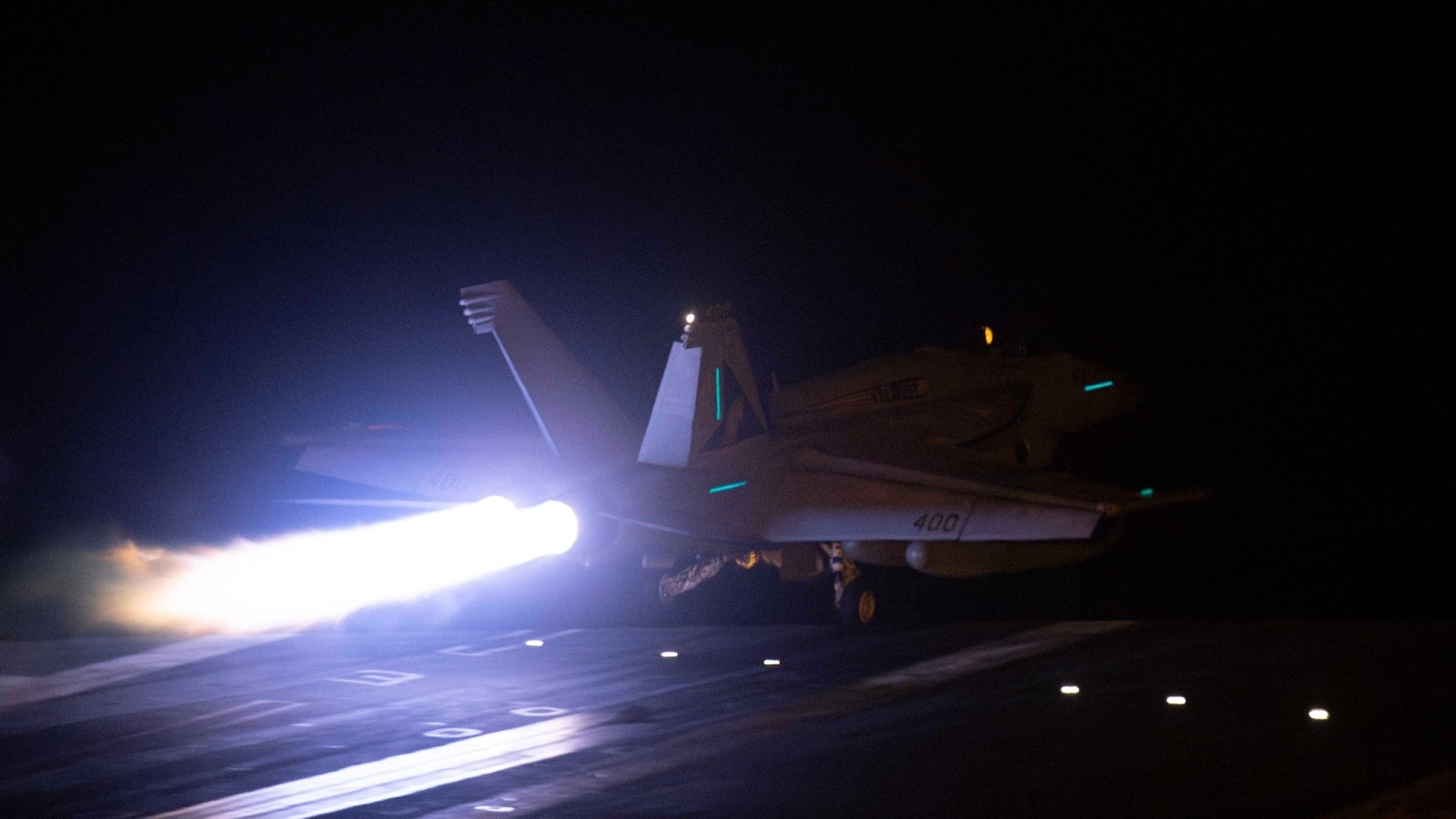The U.S. launched another retaliatory strike against Houthi militants in Yemen on Friday following Thursday’s large-scale airstrikes, according to a U.S. official.
U.S. officials believe Thursday’s strike degraded the Houthis ability to launch attacks on commercial ships in the Red Sea.
Gen. Douglas Sims, the director of the Joint Staff, told reporters earlier Friday that the strikes have degraded the Houthis capability to launch a major attack like the one they tried on Tuesday.
“I know we have degraded capability,” Sims said. “I don’t believe that they would be able to execute the same way they did the other day” referring to Tuesday’s Houthi barrage of 21 missiles and drones.
“I would hope that they don’t respond,” he said, adding that “we’re prepared in the event that they do.” He said he hoped the Houthis would realize that trying to retaliate would be “generally fruitless.”

On Jan. 11, 2024, at 2:30 a.m. (Sanaa time), U.S. Central Command forces, in coordination with the United Kingdom, and support from Australia, Canada, the Netherlands, and Bahrain conducted joint strikes on Houthi targets to degrade their capability to continue their illegal and reckless attacks on U.S. and international vessels and commercial shipping in the Red Sea.
U.S. Central Command
“I think it’s harmful to the region. It does not simply affect things that are directly tied to the Houthis,” he said. “But it affects many of their partners, quite honestly, or many of the folks that they they’re working with, so I would hope that they don’t retaliate.”
Civilian casualties from Thursday night’s strikes are not expected to be “very high,” he said, given that the majority of the locations struck were in rural areas. He specifically mentioned missile launchers in mountain areas or very lowly populated areas.
“This was not necessarily about casualties, as much as it was about degrading capability,” said Sims.
“This was solely designed to get after the capability that is impeding international freedom of navigation and international waters and that’s where we feel pretty confident we did good work on that,” he said.
This is a developing story. Please check back for updates.

